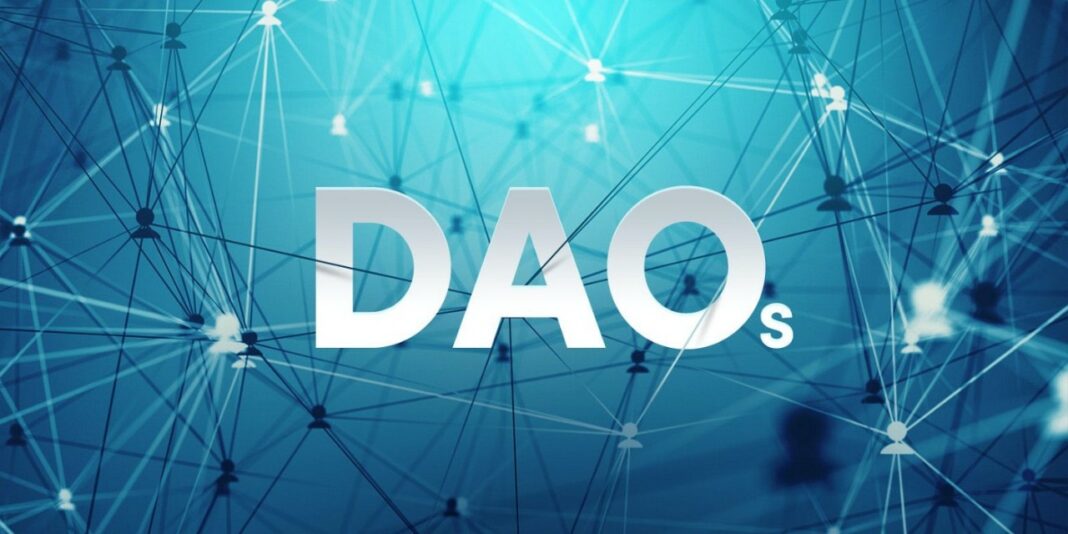Transforming the Workforce: The Evolving Role of DAOs in Shaping the Future of Work
Now is the ideal time to create a DAO. Remote work continues to grow, the gig and creator economies expand. The future entails on-chain communities advancing collectively, not just individually.
To reach this stage, DAOs must enhance governance, contributor engagement, retention, and refine compensation procedures.
Here’s the pathway to approach this goal.
Move away from one token, one vote
Evaluating on a per-wallet basis, there are only about 2.5 million eligible voters in current DAOs. With around 676 recorded DAOs and 330 of them averaging fewer than 1000 token holders, the DAO space appears to favor a select few. This contradicts the ideal state of transferring power back to the individuals who truly drive communities and firms.
To address this, DAOs must shift from a pay-to-play model to a more equitable distribution of voting power and ownership. One approach is a quadratic voting-inspired model, where the square root of token weight determines voting power. Another is a “DAO-based democracy,” where the entire DAO elects officials to vote on its behalf.
While most DAOs still follow a one token, one vote system, initiatives by organizations like Gitcoin and the work done by RadicalxChange offer promising directions for a more inclusive future.
Integrate cryptocurrency seamlessly into the backend systems.
Enhancing governance structures in DAOs is just part of the challenge. What about unlocking their broader potential for the world beyond the crypto-sphere?
To approach this, as Jon Hillis from Cabin emphasizes, the “infrastructure needs to be invisible.” Not everyone must understand how to acquire a token from Uniswap. DAOs can operate without tokens, as exemplified by Ukraine DAO. They continue to expand membership without tokens, attracting individuals with little to no crypto knowledge.
How do they achieve this?
By simplifying onboarding and ensuring meaningful involvement, advancing the DAO’s mission. All DAOs can draw lessons from Ukraine DAO’s approach and seamlessly integrate crypto into the backend.
The simpler we make it for anyone to engage with the future of coordination and work, the more individuals will recognize the potential for a future that is more distributive than extractive.
Implement credentialing where required
Decentralized doesn’t always equate to complete permissionlessness. Yes, one might consider it a bold perspective.
However, certain DAOs necessitate controlled workstreams.
Take, for instance, a group aiming to decentralize research and development in the medical field. VitaDAO achieves this in longevity research, categorizing participants based on their backgrounds. Only academics in the field of longevity science are allowed to contribute to sourcing projects for potential funding by the DAO. Boys Club operates on an invitation-only basis, where an existing member vouches for the alignment of the newcomer with the community’s mission. Ukraine DAO ensures that all operational decisions are made by Ukrainians. Bankless DAO relies on guilds, with existing members assessing the suitability of prospective members for specific tasks like legal, writing, project management, etc.
Regardless of the DAO type, some level of credentialing is necessary. For some, this applies to every working group, while for others, it may be restricted to circles like legal, requiring highly specialized skills.
Decide on the credentialing approach for your particular DAO based on its mission and the essential working groups required to bring it to fruition.
Commence with essential requirements, adequately compensate contributors.
Not everything can rely on bounties or follow highly free-form models.
Certain roles and specific DAOs require structures akin to salaried positions. However, individuals occupying these roles should possess both the necessary backgrounds crucial for propelling the DAO forward and the motivation to actively contribute. VitaDAO serves as an example.
Core contributors in VitaDAO include longevity researchers, scientists, and funding experts. Others may be categorized into different tiers, still receiving compensation for contributions aligned with the DAO’s mission.
The rationale is straightforward.
VitaDAO aims to address “aging with the power of a global community,” and who better to lead this effort than experts in the field?
Other DAOs, like Bankless DAO, may adopt a more distributed approach to defining core contributors, designed to include contributions from almost anyone in the space in their mission to onboard the next 1 billion people to crypto.
Ultimately, there’s no one-size-fits-all model for DAO compensation. However, we can borrow elements from fellow DAOs’ approaches, applying them to our present and future endeavors. Moreover, collaborative efforts can lead to the development of improved structures.
Samudai, a DAO project management platform, facilitates collaboration and bounty management for administrators, project managers, and contributors. It serves as the central hub for all on-chain work and collaboration, dedicated to leading the future of work. Samudai streamlines DAO transparency, organizational structure, and automates investment flow. It includes features such as job boards for the ecosystem, payment facilitation for contributors, workflow management, and collaboration between on-chain organizations. The platform is supported by prominent investors, including Sino Global Capital, Coinbase Ventures, A&T Capital, and Lunar Ventures.
Kushagra, the Co-Founder of Samudai, is instrumental in developing this DAO project management platform. Additionally, he holds the position of Kernel Block III Member at Gitcoin, where he successfully created a tokenization platform for content creators to generate and distribute social tokens to their dedicated community members. Since 2019, Kushagra has been actively driving innovation in social platforms using blockchain technology, aiming to enhance community participation and engagement in the creator economy. Previously, he contributed to IBM’s Digital Transformation Labs, developing an eLearning portal that enabled B2B clients to gather valuable analytical insights for effective marketing strategies. Kushagra holds a Bachelor of Technology degree in Computer Science from Vellore Institute of Technology.


